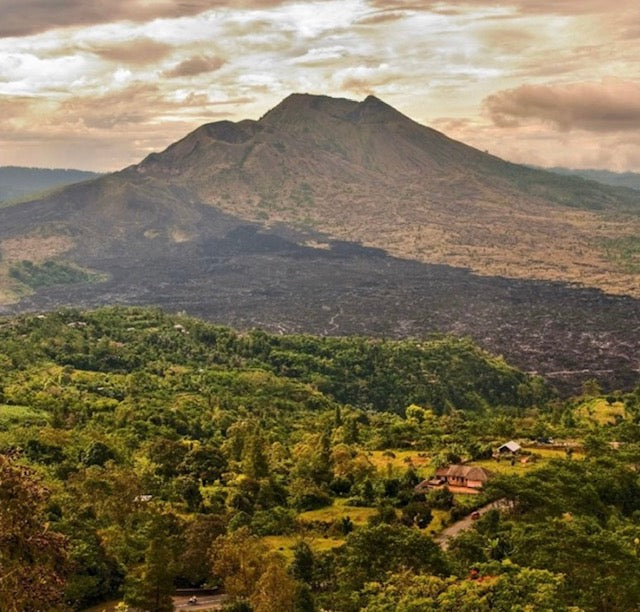This is truly excellent coffee. Smooth as silk.
Stellar! So glad I have a subscription. I’ll never be without!
Great coffee, with a soft after taste even good for cold brew IMO
$0.00 USD
Baker's Chocolate | Vanilla Bean

Varietal: Bourbon & Typica

Location: Kintamani Highland

Elevation: 1,299-1,699 meters

Process: Wet Hulled
Get 15% Off on All Subscription Orders & Free Shipping on Orders $40+
Get 15% Off on All Subscription Orders & Free Shipping on Orders $40+
DARK ROAST | Baker's Chocolate | Vanilla Bean
Our Bali Blue Moon is a fantastic full-bodied coffee from this hidden jewel island east of Java in Indonesia. It's our darkest roast and the favorite coffee for our customers looking for a roasty, velvety cup that lingers on the palate. Our dark roast highlights flavors of baker's chocolate & vanilla bean.
Location: Kintamani Highlands
Varietals: Bourbon, Typica
Elevation: 1299 - 1699 meters
Process: Wet hulled, Patio dried
Bali Blue Moon is named after the bluish hue of the bean produced from the wet-hulling process called Giling Basah in the Indonesian language. This coffee comes from small family farms where each producer uses a few acres to cultivate coffee along with citrus trees in the volcanic soils of Mount Agung in the Kintamani highlands.
They hand sort their harvested cherries before depulping and fermenting them in their own farm micro-mills. After washing, the coffee is spread on patios to remove excess moisture from the parchment. Unlike conventional processing in other regions, the parchment is removed while the coffee still contains a relatively high level of moisture. This method, known as the wet-hulling process or Giling Basah, leaves the beans exposed as they continue drying on patios until they reach the ideal export moisture level—resulting in their signature bluish hue.
In Bali, producers preserve a traditional rural way of life organized around the Subak Abian, a community-based cooperative system rooted in ecologically sustainable irrigation practices. These systems, developed over 1,000 years ago by Hindu priests, are guided by the philosophy of Tri Hita Karana—the balance of three sources of prosperity: harmony with people, nature, and spirit.
Note: Since coffee is an agricultural product, subscriptions for single origin coffees may change based on availability. We always source similar taste profiles and notify of any upcoming changes.


Bali Blue Moon is an excellent full-bodied coffee with the roasty notes I’m looking for in a dark roast like this—but not bitter or over roasted. I can taste the natural tones of vanilla bean. This is an excellent very dark roast.
Deep and rich. My kind of coffee
Wouldn’t necessarily say I loved it but quite good and definitely enjoyed trying it. Not a huge dark roast guy and this is definitely quite dark but still enjoyable and interesting to try such a dark roast. Wouldn’t say it’s like abounding with an impressive and nuanced sort of flavor but there’s something there. Like the color of the packaging and name too.
I bought coffee from the same place for over 20 years. Cheaper than most and 16 ounces. 2 lbs free shipping. Still that way today. Good honest people. So, why would I change. Quality and taste.. YOUR COFFEE, IS SIMPLY BETTER. I SHALL continue to use both of you. One out of loyalty and one out of quality. You can decide who is who. GOOD JOB!
I added Magnolia Coffee Company Bali Blue Moon coffee to my list today. The aroma was the first indication that I had made a good choice. The taste is bold but not so bold that its too bitter. My wife says it stands up to creamer very well. This is a 4 plus stars coffee. I highly recommend you try this coffee.
Great coffee awesome customer service love these guys
This is truly excellent coffee. Smooth as silk.
Stellar! So glad I have a subscription. I’ll never be without!
Great coffee awesome customer service love these guys
This is truly excellent coffee. Smooth as silk.
Stellar! So glad I have a subscription. I’ll never be without!
Great coffee, with a soft after taste even good for cold brew IMO